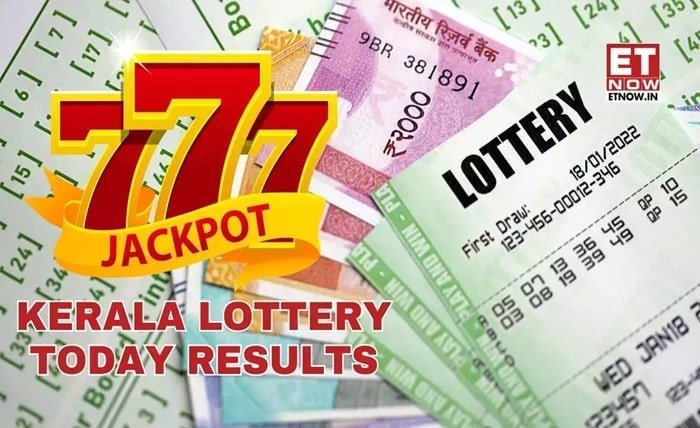Lotology Results: What They Mean and How They Impact Your Life

Introduction
When people hear the term “lotology results,” they might be confused. Is it a form of scientific research? Or is it something related to the field of statistics or another discipline? Lotology, while not a term that’s universally recognized in traditional academic contexts, refers to a specific system of results used in various decision-making processes, from random selection to data-driven analysis. In this blog post, we will explore the meaning, uses, and importance of lotology results, providing a comprehensive look at how they impact our understanding of specific events, scenarios, or even personal decisions.
Lotology results are often used to predict, measure, or evaluate outcomes in situations where randomness plays a key role. They can help in lotteries, scientific studies, or even the selection process for certain roles or opportunities. By understanding these results, individuals and organizations can better interpret their situations, make informed decisions, and use the outcomes to their advantage.
What is Lotology?
Lotology is a relatively obscure field that blends elements of probability, randomness, and outcome prediction. At its core, it revolves around the collection and analysis of results generated through random processes, often in the form of lotteries or other games of chance. These results, known as lotology results, serve as data points that can be analyzed to assess patterns, trends, or predict future events.
The term “lotology” comes from the root word “lot,” which refers to a share or portion, typically drawn at random. In ancient times, lotteries were used to make decisions or allocate resources, from military conquests to land distribution. Today, lotology results still hold a significant place in fields like statistics, psychology, and even economics. The discipline’s goal is not necessarily to predict with complete certainty but to make probabilistic inferences that can help improve decision-making.
How Are Lotology Results Generated?
The generation of lotology results typically involves processes that incorporate randomness or elements of chance. These can include lottery draws, random number generators (RNGs), and other chance-based methods used to produce unpredictable outcomes. In most cases, a predetermined process is followed, ensuring that the results are entirely random and unbiased.
One of the most common examples of lotology results comes from the lottery system. Lotteries rely heavily on randomness to ensure fairness, and the results of each drawing are closely analyzed to ensure transparency. Beyond lotteries, lotology results can also be seen in various real-world applications, such as market research, algorithmic predictions, or even sports gambling.
Lotology Results in Lotteries and Games of Chance
One of the most well-known uses of lotology results comes from the world of lotteries and games of chance. Lotteries are a popular form of gambling where individuals purchase tickets with random number combinations, hoping to match the winning combination drawn at random. The results of each lottery drawing can be considered part of the field of lotology, as they follow a probabilistic model that can be studied and analyzed.
For example, many national and international lotteries analyze the frequency of number draws, which can help in predicting future trends and patterns. While these predictions are by no means foolproof, they are based on historical data and the concept of randomness that defines lotology results. Understanding these results helps people make informed decisions about which tickets to buy, or when to participate in certain lottery draws.
Interpreting Lotology Results in Scientific Research
lotology results are also valuable in scientific research, particularly in fields where randomness is a critical factor. This includes clinical trials, experimental designs, and even environmental studies. When conducting experiments that require random sampling or random allocation, researchers rely on lotology results to help ensure that their findings are as unbiased as possible.
For example, in clinical trials, random assignment of participants to different treatment groups ensures that the results are not influenced by any external factors. Lotology results are used to analyze the probability that any given treatment or intervention is effective, based on the random distribution of participants. In such cases, understanding and interpreting lotology results can lead to more accurate conclusions and better decision-making within the scientific community.
Lotology Results in Business and Market Analysis
Lotology results also play an important role in the business world, especially when it comes to market analysis and strategic decision-making. Many businesses rely on predictive models to determine the best course of action for their company, and randomness can be a factor in customer behavior, purchasing decisions, and market fluctuations.
For example, companies may use lotology results to simulate market conditions, helping them predict potential outcomes under various circumstances. This allows for more informed decision-making when it comes to product launches, pricing strategies, or investment opportunities. By understanding the probabilistic nature of lotology results, businesses can better navigate uncertainty and improve their chances of success.
The Role of Lotology Results in Personal Decision Making
On a more personal level, lotology results can have a significant impact on individual decision-making. Whether it’s selecting a career path, choosing between multiple options, or even determining the outcome of a game or contest, randomness often plays a role in shaping our choices.
For example, when faced with a difficult decision, individuals may resort to a randomized process—such as drawing lots or flipping a coin—to help them make a decision. While this might seem like a simple game of chance, it actually draws on lotology principles to remove bias and increase fairness in the decision-making process. In this way, lotology results can help reduce uncertainty and allow individuals to make decisions with more confidence.
Conclusion
In conclusion, lotology results are essential for understanding random processes and their implications. Whether they are used in lotteries, scientific studies, business analyses, or personal decision-making, these results serve as critical data points that help inform decisions and outcomes. By grasping the significance of lotology results, individuals and organizations can gain a deeper understanding of probability and randomness, ultimately leading to more informed and effective choices.
FAQs
1. What are lotology results?
Lotology results are outcomes generated through random processes, typically used in lotteries, games of chance, scientific studies, and business analysis.
2. How are lotology results used in scientific research?
In scientific research, lotology results are used in randomized controlled trials, ensuring that participants are assigned randomly to treatment or control groups to eliminate bias and improve the accuracy of findings.
3. Can lotology results predict lottery winners?
While lotology results can help analyze patterns in lottery draws, predicting the exact winner is impossible due to the randomness of the process.
4. How can businesses benefit from lotology results?
Businesses can use lotology results to simulate market conditions, predict customer behavior, and make more informed strategic decisions.
5. Is there any way to influence lotology results?
Lotology results are based on randomness and are inherently unpredictable. While patterns can be analyzed, there is no way to influence the outcome with certainty.





